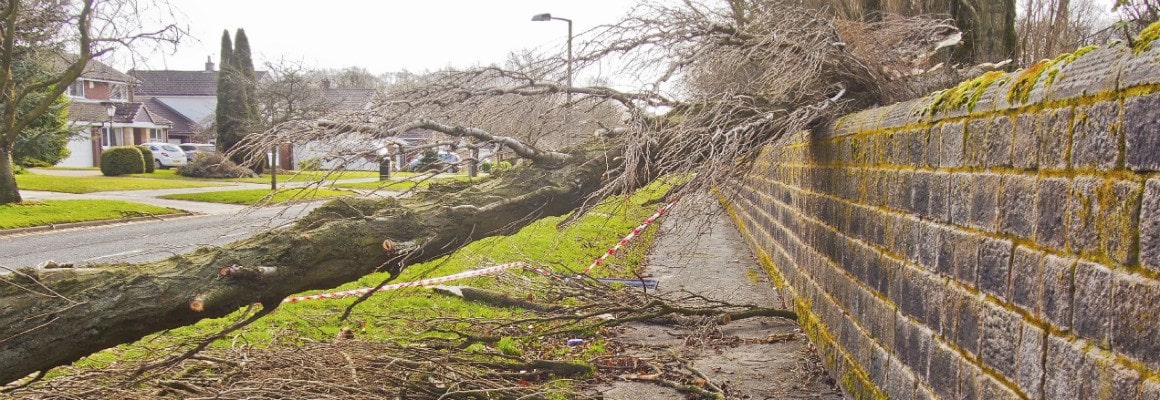Storm damage - what am I covered for?
Storms can cause a huge amount of damage to property, and potentially cost you a lot of money in repairs.
High winds can uproot trees and send dangerous debris through the air, while heavy rain can saturate the ground, block drains and cause flash floods. Lightning strikes can start fires and damage electrical equipment.
Technically, a storm is defined as having a wind speed of over 55mph, but damage can be caused by much less powerful gusts. These are known as gales, and include wind speeds of anything over 39mph. Insurers will sometimes refer to wind reports from the MET Office to decide whether damage being claimed was caused by bad weather or other issues. Ensure that you check your policy wording to see what you’re covered for.

It’s important not to underestimate the power of storms and gales. Here’s what to look out for when agreeing your insurance policy:
Storm damage insurance: six basics you need to know
1. The bricks and mortar of your home, plus any permanent fixtures like kitchen or bathroom fittings, are protected by your buildings insurance.
2. A severe storm can also cause damage to your possessions, so you’ll need contents insurance to cover that. Your contents insurance policy can also include items kept in outbuildings, like garages or sheds.
3. Most household buildings and contents insurance policies should cover storm damage to your home and belongings as standard. It can also pay for temporary accommodation while your home is repaired. Be sure to check the terms - it could make a big difference when making a claim.
Did You Know...? Following the highest winds to hit the UK in the past 10 years - the St Jude Storm of October 28, 2013 - insurers paid out more than £300 million to cover the damage caused by that event alone.
4. Some insurers will offer an early payment in lieu – for example, if you can’t afford to pay for new items straight away, they will offer settlement early that will be taken from the final settlement.
5. Your buildings insurance policy should also cover you if something on your property, such as a falling tree or loose roof tile, causes damage to a neighbour’s property.
6. If your car suffers storm damage, it should be covered on your car insurance policy if you have comprehensive cover.
Remember, your insurer will have experience of supporting homeowners after extreme weather events. They are there to help you through it.
Find out more about Home Insurance from Swinton...
- Flood Risk Insurance - Flexible policies to suit a wide range of circumstances
- Combined Home Insurance - Protect your home and its contents
- Buildings Insurance - Flexible buildings cover to suit your needs
- Contents Insurance - Protect your possessions from loss or damage